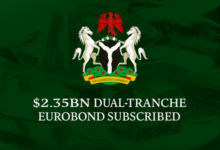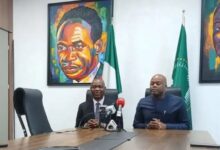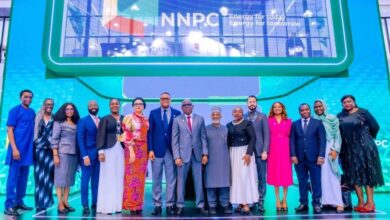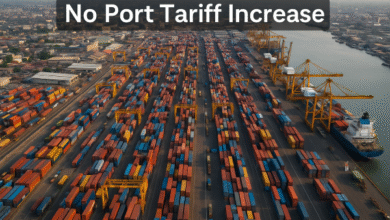Africa Loses $74.5bn Yearly to Skewed Credit Ratings: Experts Warn of Structural Bias in Global Finance
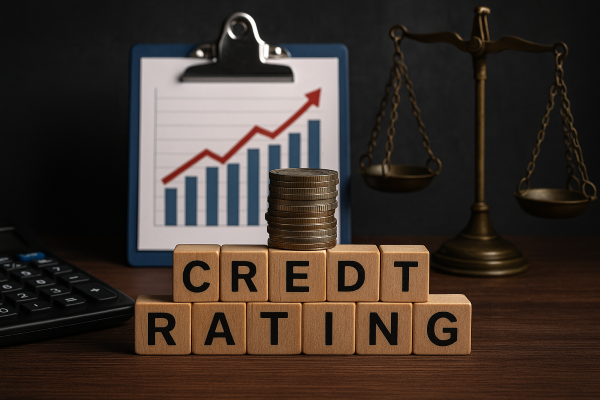
Africa’s fragile economic growth is being undermined by systemic bias in global credit ratings, costing the continent an estimated $74.5 billion every year, according to leading economists and policymakers who spoke at a high-level regional conference in Dakar, Senegal.
The two-day summit — convened by AfriCatalyst, the South African Institute of International Affairs (SAIIA), the United Nations Development Programme (UNDP), and the African Union Development Agency–NEPAD (AUDA-NEPAD) — brought together policymakers, central bankers, and economists to discuss the structural reforms needed to secure Africa’s fair access to global capital markets.
At the heart of the debate was one pressing concern: Africa’s creditworthiness is being systematically undervalued, leading to inflated borrowing costs, restricted investment flows, and limited fiscal space for growth and development.
“The political commitments are there — but they must translate into pipelines, transactions, and measurable outcomes,” said Catherine Phuong, UNDP Resident Representative in Senegal.
“Aligning incentives between policymakers, markets, and research institutions is critical to lowering Africa’s cost of capital.”
The Bias in Global Credit Ratings: Africa’s $74.5 Billion Penalty
According to estimates presented at the conference, Africa pays a “perception penalty” of up to $74.5 billion annually, driven by inflated risk assessments from major international credit rating agencies such as Moody’s, Fitch, and S&P Global.
These agencies often assign lower sovereign ratings to African economies than their fundamentals warrant — leading to higher bond yields, higher insurance costs, and lower investor confidence.
Dr. Bartholomew Armah, Chief Economist at AUDA-NEPAD, explained that Africa’s external debt stock reached $863 billion in 2023, equivalent to 169% of total exports.
With average bond yields at 9.8%, debt-service payments now consume 16% of export revenues, constraining public investment in infrastructure, education, and health.
“When you add illicit financial flows of $88 billion annually, you begin to understand the scale of systemic capital leakage that continues to impoverish the continent,” Armah said.
“The solution lies in building regional financing mechanisms — like the African Monetary Fund and African Stability Mechanism — to safeguard Africa’s fiscal sovereignty.”
A New Vision: The Africa Credit Ratings Initiative
A major outcome of the conference was renewed momentum behind the Africa Credit Ratings Initiative (ACRI) — a collaborative framework by UNDP and AfriCatalyst designed to recalibrate how African risk is assessed.
The initiative aims to reduce dependency on external Western-based rating agencies and develop Africa-led methodologies grounded in contextual realities, growth potential, and structural reforms.
By using localized risk indicators, historical resilience data, and inclusive evaluation criteria, ACRI seeks to close the perception gap that penalizes African nations despite improving macroeconomic governance and institutional reforms.
Dr. Daouda Sembene, CEO of AfriCatalyst, said Africa’s growing assertiveness on the global stage — particularly under South Africa’s G20 presidency — presents a historic window to reshape global financial governance.
“The voice of the Global South must not only be heard but prioritized,” Sembene emphasized. “We must move from participation to influence — from rhetoric to results.”
The Debt Trap and the Case for Fiscal Sovereignty
The conference underscored how biased Africa credit ratings deepen Africa’s debt vulnerability, pushing many nations toward distress despite improvements in governance and policy discipline.
Today, 25 African countries face some level of debt distress — up from just nine in 2012. The ripple effect is evident in reduced public investment, slower social development, and constrained climate adaptation efforts.
Experts advocated for:
- Greater transparency in global financial governance;
- Regional bond markets to deepen liquidity and reduce external dependency;
- Empowered development banks like Afreximbank and AfDB to provide counter-cyclical funding; and
- Pan-African fiscal instruments to cushion against shocks from fluctuating commodity prices or external interest rate hikes.
“A fair financial system is not charity — it’s justice,” one delegate noted. “Africa’s fiscal stability is in the world’s collective interest.”
BRANDECONOMY ANALYSIS: Rethinking Africa’s Financial Narrative
The warning from experts in Dakar exposes the deep structural asymmetries in the global financial architecture — an ecosystem that still perceives African economies through a colonial lens of risk, rather than through evidence-based performance metrics.
BRANDECONOMY analysis identifies five key takeaways from the debate:
1. Credit Bias as a Hidden Tax on Growth
Every additional percentage point in risk premium inflates the cost of borrowing, diverting billions from development priorities. For Africa, this “bias tax” is equivalent to twice Nigeria’s annual education budget or Ethiopia’s entire infrastructure allocation.
2. Strengthening Domestic Capital Markets
Africa’s dependency on external debt markets reinforces vulnerability. Regional capital pools — such as the African Financial Markets Initiative — could channel pension, sovereign wealth, and diaspora funds into local development bonds.
3. Reforming the Global Ratings Industry
With only three Western-based agencies dominating over 90% of global ratings, Africa must advocate for transparency in methodologies and inclusion of contextual socio-economic variables to ensure fair assessments.
4. Leveraging the AfCFTA Advantage
The African Continental Free Trade Area (AfCFTA) can underpin regional credit markets by harmonizing standards, boosting cross-border investment, and building the financial depth needed for continental resilience.
5. Strategic Diplomacy in Global Forums
As COP30, G20, and FfD4 approach, Africa’s unified voice must press for debt restructuring, climate-linked financing, and a just transition framework that reflects Africa’s development realities — not donor optics.
The Road Ahead: From Bias to Balance
Africa’s economic story is evolving — from aid dependency to agency, from risk to resilience, and from perception to performance.
The $74.5 billion lost annually to unjustified risk premiums could be reclaimed through reforms, innovation, and assertive diplomacy.
To achieve this, Africa must redefine its financial narrative — from being rated by others to setting its own standards.


